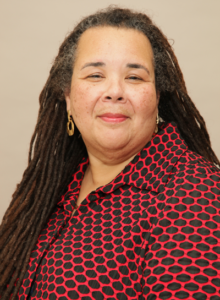
Knowing Better
Have you ever thought you knew something, only to discover, with the passing of time and the acquisition of experience, that there was more depth, breath, and nuance to the idea or situation than you had previously thought? Or, worse yet, have you ever found out that something you thought you knew was simply – inaccurate, outmoded, or outdated?
Physicists are still working to understand the nature of light as well as the nature of gravity. Every 100 years or so there is a break-through which brings new clarity, more scientific accuracy, a better grasp of the basic concepts of light and gravity. Each time there is a new discovery, fellow scientists work to refute, amend and/or build upon the fresh claim. The intricacies of the universe are still being uncovered, discovered, created.
I want my students to approach their work of ministry like these physicists. I want them to work at contesting the current conventions of church/theology/faith as an obligation of discipleship. I want them, as part of their role and responsibility of religious leadership, to work toward new approaches, perspectives, and worldviews which will evidence the profound complexity of praising God and serving neighbor for such a time as this.
Alas, too often my students simply want me to tell them what to think – “just tell us the truth/the recipe/the formula” …. as if truth and theology are static, or even knowable.
 I am trying to get my students “to think new thoughts about old ideas” (an Emilie Townes phrase). I am trying to get my students to think as if the context of the digital age has made us pioneers in a new social and religious experiment – because I actually think it has. I want my students to yearn to know better.
I am trying to get my students “to think new thoughts about old ideas” (an Emilie Townes phrase). I am trying to get my students to think as if the context of the digital age has made us pioneers in a new social and religious experiment – because I actually think it has. I want my students to yearn to know better.
Re-examining what we thought we knew, nurturing curiosities for what others say is important, realizing that multiple, even opposing perspectives are likely simultaneously “right” while other tried-and-true perspectives need to be abandoned often leaves students flustered – especially those who came looking for the one true truth and the one true religion to match their own one call to ministry. Defending “one” in the age of multiplicity is like lashing yourself to the ship’s mast in a high-tide thunderstorm.
I am aware that my students quickly learn rote answers to deep questions. They quickly read the culture and politics of the academy and substitute their churchified answers for answers provided by faculty. This is not increasing their knowing better. This is simply trading the milk cow for the bag of magic beans.
Knowing better demands a suspicion that all there is to know has not yet been interrogated. It leans heavily upon the notion that God is mystery and God reveals God’s self in God’s own pace and rhythm. Students talk about God as if “he” is the uncle in the attic; as if all we need to know about God is known; as if the repertoire of God has been performed. Save us oh God from our lack of curiosity about you and your ways.
Knowing better is important to me, in part, because of my mentor Charles Foster. I am a womanist, an outspoken, unorthodox, sometimes Christian scholar shaped and influenced by a reserved, white, man who passionately believes in the redemption of the world through the gospel of Jesus. People who do not understand the racial identity politics of the USA or of the racist/sexist academy are surprised to know my beloved mentor is a white man. My knowing better about speaking out against racism, sexism - the hegemonic forces of the US society is possible, in part, because of the loving and steadfast nurturing I received from Chuck. A man of his convictions, he believed the New Testament writers who envisioned the Kin-dom of God as something other than a land of patriarchy and white supremacy. Even though he is not a womanist, Chuck gave birth to a womanist. The ways of God are remarkable – a holy mystery!
During the first session of Introduction to Educational Ministries Chuck was on my mind. I thought of this quote. Charles Foster said, “…the most serious threat to any community’s future occurs when its education can no longer maintain its heritage into the present or renew its identity or vocation for its changing circumstances.” More than anything, I want my students to be able to maintain the changed and changing Christian heritage while finding new and needed ways to renew its identities and vocations all the while surviving in the unprecedented liminality of the 21stcentury. If we are to be Christian in the future, we need to pay attention to Chuck’s wisdom in the present.
I want my students to be more than lukewarm church bureaucrats whose primary question of ministry is “Do the people like me.” Knowing better entails having an urgency about the relevance of a Christian vision for a pluralistic and technological global village – I learned this from Chuck.
Leave a Reply